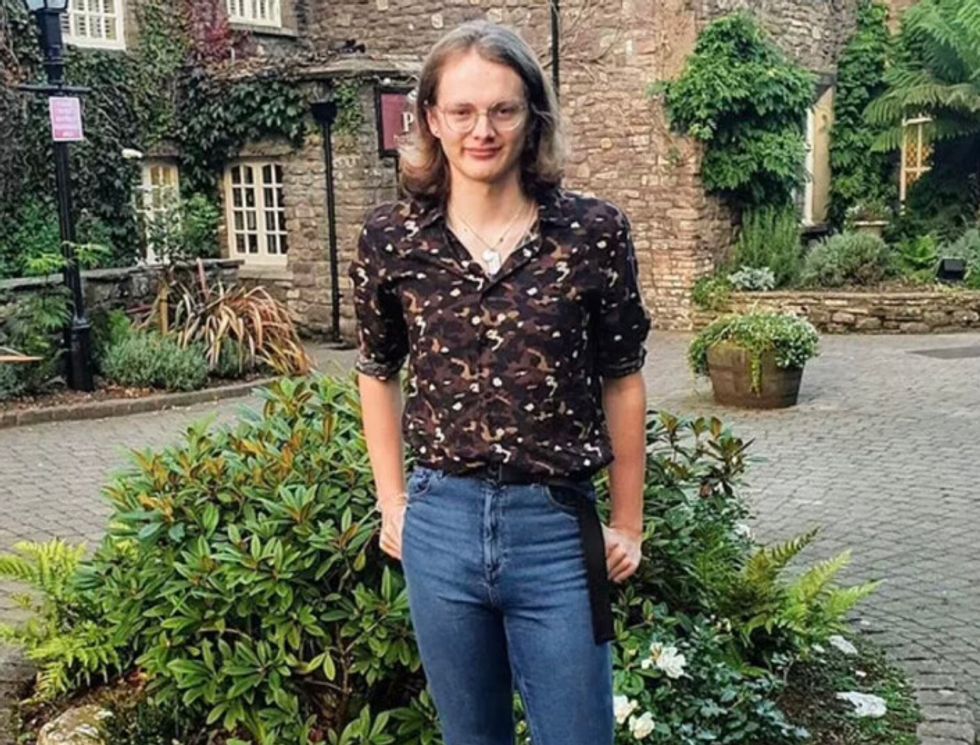Don't Miss
Most Read
Trending on GB News
More than 90 percent of elite women’s cyclists are opposed to competing against transgender athletes, according to a survey carried out by The Cyclistes Professionnels (CPA).
The CPA conducted the survey of its female members earlier this year and presented the findings to the sport’s governing body, the UCI.
Marion Clignet, the triple cycling world champion, is part of a group that wrote to the UCI last week calling it to review its rules on trans competitors.
She said: “The CPA women ran a survey a few months ago and over 92 percent did not agree with trans athletes racing in the women’s peloton.”
UCI’s regulations, which were updated in January this year, permit transgender women to compete in female races if they have had testosterone levels below five nanomoles per litre for a 12-month period prior to competition.
Transgender athlete Emily Bridges
Instagram
A young healthy male level of testosterone will range from 20 to 30, compared with a female's range of 0.7 and 2.8, according to the NHS.
Despite these rules being followed by transgender athlete Emily Bridges, they were barred from competing in their first female race two weeks ago at the National Omnium Championships in Derby.
The Telegraph reports that female athletes were considering boycotting the Championships if Ms Bridges had been allowed to compete.
British Cycling’s head of Olympic programmes Sara Symington also co-signed the letter to the UCI, criticising its current policy on transgender inclusion.
The letter signatories claimed the UCI’s current rules do not guarantee female athletes fair and meaningful competition.
Ms Clignet said her group was “for the inclusion of transgender athletes in cycling without compromising equality in women’s cycling”.
She added: “This does not mean the women don’t believe there should be inclusion for trans athletes in cycling – we just want to keep the promise of fair and safe cycling to women alive and well.”
Prime Minister Boris Johnson entered the debate last week when he said that biological males should be barred from female-only sporting events.
Cycling champion Marion Clignet
@actionmarion / Twitter
British Cycling’s statement noted concerns regarding the extent to which its policy appropriately reflected the Sports Councils’ Equality Group guidance, published in September 2021.
Among a number of conclusions made by the Group was a proposal that sports that could not ensure physical ‘fairness’, such as contact or combat sports, could introduce an ‘open’ category in addition to male and female ones.
British Cycling acknowledged that differences between its policy and the UCI’s allowed trans athletes to race domestically even if their cases were pending with the UCI, or even if the UCI had ruled them ineligible to compete.
The governing body said in their statement: “While the current policy was created following an extensive external and internal consultation, the review will allow us time for further discussion with all stakeholders, including women and the transgender and non-binary communities, as we strive to provide all within our sport with the clarity and understanding they deserve.
“As an organisation we remain committed to ensuring that transgender and non-binary people are welcomed, supported and celebrated in the cycling community, and the inclusion of these groups within non-competitive activities remains unaffected by the suspension."
It added: “We will also continue to work tirelessly to ensure that our sport remains free of hate, discrimination and abuse in all forms, and that we prioritise the welfare of riders, volunteers, event organisers, commissaires and others that our sport can’t continue without.
“In the past week we have started in earnest our work to galvanise a coalition of organisations to come together to find a better answer, and have enjoyed productive discussions with national governing bodies and others across sport.
“The challenge is far greater than one event or one sport, and only by working together can we hope to find a timely solution, which achieves fairness in a way that maintains the dignity and respect of all athletes.”












